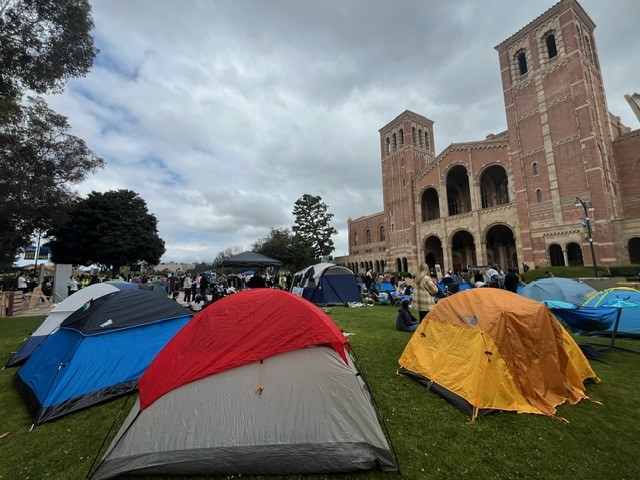An Orange County woman who contracted meningitis so severe that all four of her limbs had to be amputated was outfitted with a new arm Wednesday.
Kaitlyn Dobrow received her custom-made right arm (complete with a cheetah print cast) at Hanger Prosthetics and Orthotics in Downey. With a huge smile on her face, Dobrow glowed as she looked down on her new limb.
Dobrown contracted the illness last year at age 19. What Dobrow thought was the flu turned out to be meningococcal meningitis, a bacterium that could only be stopped by amputating both her arms and legs.
NBC4 first interviewed Dobrow when she was in the intensive care unit at UC Irvine Medical Center. She had already undergone 20 surgeries, but was determined to beat the disease.
From her hospital bed, Dobrow said with a smile, “I don’t like relying on people.”
That determination and faith is what brought her home to her loved ones – and her beloved dogs.
News
Top news of the day
Last October – eight months after she was told she had just a week to live – Dobrow returned home to a converted dining room specially tailored for her new needs.
It’s unclear how Dobrow contracted meningitis, but it’s usually spread through saliva. Whether from a shared drink or otherwise, Dobrow’s father said the life-threatening ordeal could have been avoided.
“You can be inoculated as early as 11, and again later and you’re home free,” he said last fall.
The bacteria -- Neisseria meningitidis -- that causes the bloodstream infection afflicting Kaitlyn also causes meningococcal meningitis, an inflammation of tissue around the brain and spinal cord, according to the federal Centers for Disease Control and Prevention.
It can have severe health impacts and can progress quickly from flu-like symptoms, rashes and a stiff neck, so health officials say early diagnosis and treatment are crucial.
Infections from the bacteria can be spread from person to person through respiratory and throat secretions and are common in close quarters -- such as military barracks and college dormitories -- according to the CDC website. Person-to-person contact must be close – such as kissing or sharing food – for the bacteria to spread.
Those who have been in close contact with a patient with meningococcal disease should be treated with antibiotics to prevent the illness from progressing, according to the CDC.



